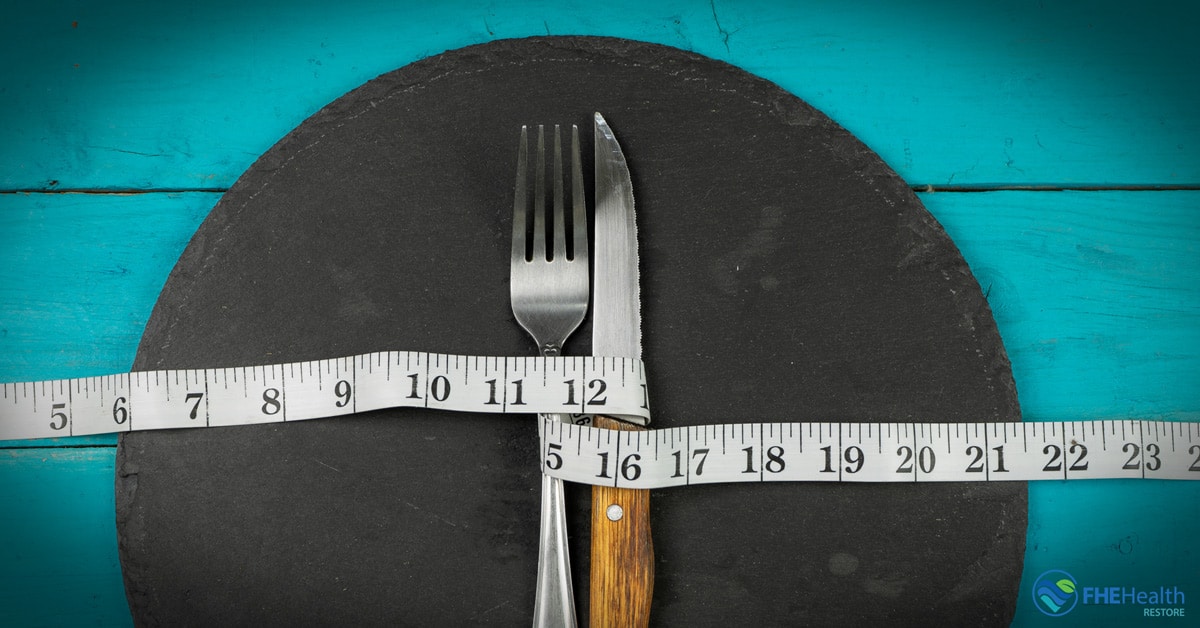According to the National Eating Disorders Association (NEDA), eating disorders and substance abuse commonly coexist. Up to 50% of people diagnosed with eating disorders frequently report abusing alcohol and other recreational drugs. At least 35% of people who have substance abuse problems have suffered from an eating disorder. Several underlying factors are shared by individuals with both ED and addiction, ranging from physical and genetic to emotional factors.
Neither diagnosis is linear, so if you’re diagnosed with one disorder, chances are high that another issue is at play as well. Often, individuals who have substance abuse disorders have an undiagnosed eating disorder. Both addiction and eating disorders are complex issues that require attention.
Understanding the relationship between eating disorders and substance abuse can lead to more effective treatment plans. Keep reading to learn about each disorder, their shared risk factors and where to get help.
Eating Disorders and Substance Abuse
There’s a link between depression, alcoholism and eating disorders. And this only scratches the surface of the many mental health issues associated with both eating disorders and substance abuse. Before delving into the shared risk factors, it’s important to understand eating disorders and substance abuse and addiction.
The American Psychiatric Association states that an eating disorder is any type of unhealthy relationship with food that leads to a persistent behavioral problem, regardless of consequences. These behaviors frequently cause negative thoughts, anxiety and low self-esteem.
Those who have eating disorders have unhealthy eating patterns or an addiction to remaining thin. This type of addiction is different from substance abuse addiction, but both have similar underlying emotional and psychological factors.
Those with substance abuse addiction can’t use drugs recreationally or drink alcohol in moderation. There’s no “off switch,” and despite life-threatening consequences and potentially destroying the lives of loved ones, the urge to use drugs or drink is too strong. Because addiction is a disease that affects the brain, the only solution is to never touch substances.
Addictive substances can be alcohol, illicit drugs, prescription drugs and nicotine. One of the side effects of using recreational drugs, such as heroin and morphine, is anorexia. Abuse of prescription drugs can also cause anorexia.
Types of Eating Disorders
The two most commonly diagnosed eating disorders are anorexia nervosa and bulimia nervosa. There are believed to be as many as eight types of disorders, which can range from eating inedible objects (pica) to unspecified eating disorders. EDs can affect your physical health, psychological well-being and social life.
Below is a list of five common eating disorders as outlined by the American Psychiatric Association.
Anorexia Nervosa
Individuals who have an extreme need to be thin at all costs, despite being skeletal, have anorexia. They see only a perception of their body and not how it truly looks. Anorexics starve themselves to the point of being hospitalized and have an irrational fear of gaining weight.
Bulimia Nervosa
Bulimics control their daily intake of food in public but binge and purge in secret, frequently feeling ashamed of their behavior. Large quantities of food are consumed in a short space of time, usually followed by periods of vomiting and laxative use. Much like anorexia, bulimia is characterized by weight obsession.
Binge Eating
Binge eating is similar to bulimia in that individuals eat large quantities of food at one time. However, binge eaters don’t purge to get rid of their food. Morbidly obese people are typically binge eaters. Binge eaters are also prone to carrying out this kind of behavior with alcohol, making them binge drinkers as well.
Avoidant Restrictive Food Intake Disorder
Although not a commonly recognized disorder, ARFID is defined by an individual’s need to control the types of food they eat. Nutritional deficiencies, weight loss and debilitating anxiety are all symptoms of this disorder. People who have ARFID fear choking on food, allergic reactions and other adverse effects. They may also avoid foods with certain colors, shapes and textures.
Compulsive Overeating
Compulsive overeating is similar to binge eating, but it’s driven by emotional circumstances rather than addiction. People who carry trauma frequently overeat to cope with upsetting emotions. Otherwise known as emotional eating, compulsive eating is a coping mechanism for many people. This style of eating can lead to health problems such as diabetes, high cholesterol, heart problems and stroke.
Shared Risk Factors
Eating disorders and substance abuse disorders share various risk factors, which is why they’re so closely linked. Eating disorders are considered one of the most complex conditions because there’s no one root cause. Instead, there’s a list of risk factors that also co-occur with substance abuse.
A few of the shared risk factors are:
- Genetic makeup and direct family history of addiction
- Mental health disorders such as bipolar, anxiety and depression
- A similar brain chemistry in the reward-based center of the brain
- Low self-esteem and confidence
- Tendency toward suicidal thought patterns
- Capacity to deal with stress
- Peer pressure and cultural expectations
- Traumatic childhood and negative life experiences
Treatment Approaches
People with eating disorders and substance abusers can’t simply stop what they’re doing without intervention. A streamlined, highly integrated treatment approach is needed. Treating eating disorders and substance abuse separately could result in mixed messages and ineffective treatment. Typically, there should be a multidisciplinary team of experts who meet regularly to deliver the same message. Treatment approaches can range from group therapy and behavioral psychology techniques to medication.
If you’re struggling with mental health issues, eating disorders or addiction, don’t let it take a toll on your well-being. The compassionate and qualified team at Restore Mental Health is available 24/7 to aid your recovery. Contact the Restore team now for advice about how to start your journey.



